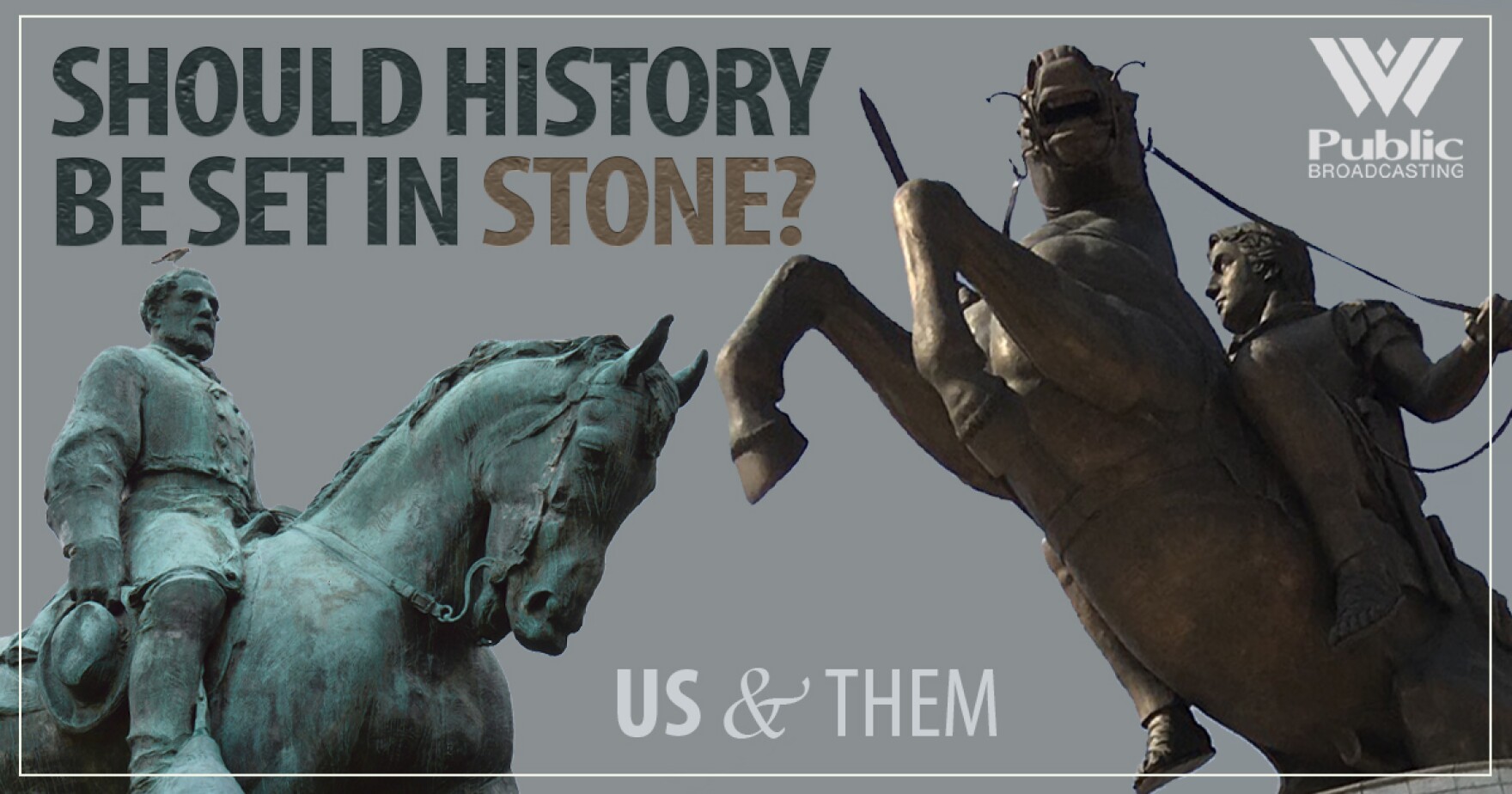When we learn our history, we see things that reflect our past. Paintings of famous battles and statues of men who were heroes to some. But how we interpret our legacy changes. Time can warp our notion of a once righteous cause.
There are examples around the world of ways we have edited our past. In the U.S., recent decisions to move Confederate monuments and take down Confederate flags. But the effort to cleanse the past is global. And in places with a much longer history, the disagreements can be more contentious and complex.
For this episode, Trey travels to Skopje, North Macedonia to speak with locals about controversial statues honoring Alexander the Great. He also visits a cemetery in Corinth, Mississippi to visit the graves of soldiers decorated with the Confederate battle flag. Trey also examines the origins and evolution of the song Dixie.
Subscribe to Us & Them on Apple Podcasts, NPR One, RadioPublic, Spotify, Stitcher and beyond. You also can listen to Us & Them on WVPB Radio – Tune in on the fourth Thursday of every month at 8 PM, with an encore presentation on the fourth Saturday at 3 PM.
